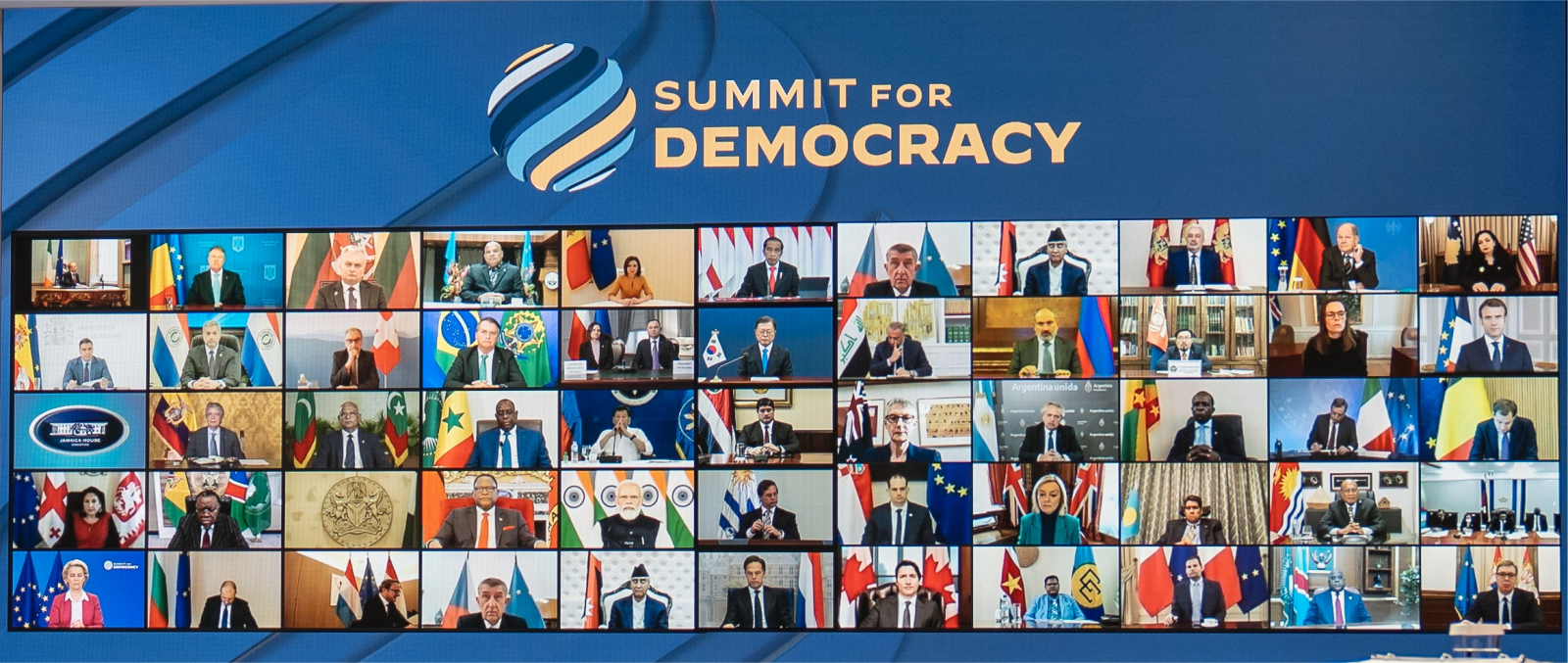
SHARE
ISSUES
It might be cold outside for democracy. For the fifth consecutive year, the number of countries moving in an authoritarian direction exceeds the number of countries moving towards democracy. It might be close to midnight for freedom. 2020 was the 15th year in a row that we saw a global decline in freedom. Or it might be exactly the moment when decent democrats decide to make 2022 a renaissance for defending democracy after the first Summit for Democracy.
Even if the long democratic recession is deepening worldwide there is actually plenty of hope.
Close to 30 countries worldwide will have general elections next year. In some of them, it is close to midnight. But in other places with contested elections, we see a hopeful dawn that could create a domino effect of turning points for democracy.
Cross-party collaboration is back. To defend democracy, deal with climate change, and solve current and future pandemics, democratic political parties need to unite. Opposition parties are forming new alliances and coalitions despite ideological differences, to keep the populists and right wing extremists out of government coalitions. Many democracies have shown resilience through the pandemic, while populists have been less successful. But there are currently few global spaces for democratic party groups and networks to collaborate in a cross-ideological, transnational manner to contribute concretely towards building democratic solidarity. At the National Democratic Institute (NDI), we are creating these spaces.
Protest and pro-democracy movements are actively tackling everything from climate change, human rights violations, and fighting misogyny and racial inequalities. Many of the activists are young. Many are women. Women make up 50 percent of the world's population but women occupy the role of Heads of State or Government in only 22 countries. 50 percent of the world’s population are under 30, but only 2.6 percent of the total number of Members of Parliament globally are younger than 30. Bridging the gap, listening to and inviting more young people into politics would revitalize democracy. Access to technology has given younger generations awareness, education and new tools to connect. When many people can look beyond national borders, it is far easier to be involved in democracy movements.
Democracy support in development aid has increased steadily since the mid-1990s. But we need more reforms. International democracy aid seems to be more successful historically at supporting democratization than preventing democratic backsliding. As a share of total aid (in 2018) countries in the OECD Development Assistance Committee (DAC) devoted only 10 percent of overseas development assistance (ODA) to this area. President Joe Biden's Democracy Summit is a great opportunity for democratic allies to unite. New promising values-based investments in people, parties and movements fighting for freedom are necessary to pave the way for democracy.
All these initiatives can build a foundation for a fourth wave of democratization. The first slow democratic wave started in the 1800s and had its breakthrough 100 years ago. That's why we are celebrating 100 years of women’s suffrage (not all women) in countries such as the US, Sweden and the Netherlands. The second wave began after World War II, and reached its peak in 1962 with 36 countries being governed democratically. The third wave, a “global democratic revolution" took off in the mid-1970s in South Europe, followed by Latin America, Asia and Central- and Eastern Europe and the Baltics. Authoritarian regimes in 60 countries were replaced by freely elected governments. However, many of them still struggle today and would not be defined as solid democracies. Some scholars argued 10 years ago that the Arab Spring could be the start to a fourth wave, but this discussion died early when little changed.
Now is the time. Illiberal forces are surfing on waves generated by turbulent winds. To manage the stormy winds we need to strengthen the sails for democracy.
NDI is a non-profit, non-partisan, non-governmental organization that works in partnership around the world to strengthen and safeguard democratic institutions, processes, norms and values to secure a better quality of life for all. NDI envisions a world where democracy and freedom prevail, with dignity for all.
Author: Birgitta Ohlsson, Director Political Parties, National Democratic Institute and former Swedish EU- and democracy Minister (2010-2014) and Member of Parliament (2002-2018).


